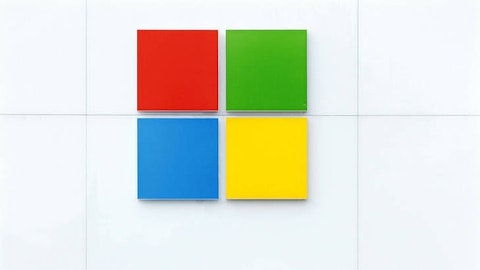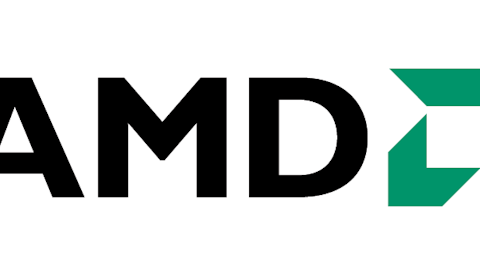
To many, Mr. Mattrick leaving Microsoft Corporation (NASDAQ:MSFT) for Zynga Inc (NASDAQ:ZNGA) is a bit like Warren Buffet leaving Berkshire Hathaway to run an Omaha credit union, or Tim Cook leaving Apple to run a computer store in San Francisco’s Chinatown. Microsoft Corporation (NASDAQ:MSFT) has had a good year that saw Bill Gates become the richest man in the world, the stock price jolting upward, and (for a time) basking in the glow that was the Xbox One. Zynga Inc (NASDAQ:ZNGA), meanwhile, looked to be nearly bankrupt thanks to a declining popularity for games like FarmVille and Words With Friends, which were social interaction games played on Facebook Inc (NASDAQ:FB). So why would Mr. Mattrick leave a solid warship for a driftwood dingy being eaten by the choppy sea of the tech world?
Back to the Farm(ville)
It was revealed on July 9 that, while at Microsoft, Mr. Mattrick pushed Microsoft to purchase Zynga in 2010 to give Microsoft a position in social gaming. At the time, Zynga Inc (NASDAQ:ZNGA), under then-CEO Mark Pincus, was a successful start-up company, and games like FarmVille were incredibly popular with Facebook Inc (NASDAQ:FB) users. Most new games that came out at this time were social media games for Facebook Inc (NASDAQ:FB) only, helping launch not only Zynga Inc (NASDAQ:ZNGA), but Facebook to the internet giant it is today.
In 2011, at the height of Zynga Inc (NASDAQ:ZNGA)’s strength on the market, the company accounted for nearly 20% of Facebook’s revenue. Contrary to what one might expect today looking at the two companies, Zynga was helping Facebook become profitable. It was because of the successful gaming company that made Facebook the social networking site, and helped the market for cloud gaming take off, beginning the debate of whether or not such games would make bulky expensive video game consoles obsolete.
Unfortunately, Zynga stood still when it should’ve been innovating. Limiting production to just its core games, Zynga was caught flatfooted by the smartphone and tablet revolution in gaming. Angry Birds became the new FarmVille. By 2012, Zynga’s share of Facebook’s revenue dropped to 15%, and the company continued to slide from there. To make matters worse, Zynga was eclipsed by King.com, makers of the successful Candy Crush Saga
and a potentially publicly listed company, as the biggest social game company on Facebook.
It became known that Zynga’s hold on Facebook’s ecosystem was waning as 2012 rolled on. Thanks to the network’s ecosystem, and the development of online data sharing and cloud gaming within the mobile phone apps, Facebook became less dependent on Zynga. In the first quarter of 2013, Facebook made over $1.2 billion off of advertising, compared to $637 million two years before. This comes primarily from mobile game players, of which 250 million are plugged into the social network in some form, usually by data sharing and status updates.
Zynga’s share price fell 66% from its IPO, thanks to an 18% drop in revenue YOY for the quarter. By comparison, Microsoft’s XBox revenue alone jumped 55% over the same time period, while Facebook’s ad revenue increased 42.8%, leading to less demand for a stalling company like Zynga that has seen itself get crowded out of the market.
Don Mattrick: savior of EA
But Zynga got their man in Don Mattrick, and the hope is that he can take the experiences of working with Microsoft and rival game maker Electronic Arts Inc. (NASDAQ:EA) to give the company a boost. While at Electronic Arts Inc. (NASDAQ:EA), Mr. Mattrick was faced with a company that was making only a few good game franchises, and a lot of poor ones, causing the company to struggle mightily. To make the company competitive, Mr. Mattrick cut workers, shuffled remaining developers, and streamlined the company to just core games like The Sims and Madden. In doing so, he helped make Electronic Arts Inc. (NASDAQ:EA) one of the world’s pre-eminent game franchises, with a stock price increasing by 186% from 2000 until his retirement in 2007. Also over that time period, market cap increased by $13 billion, while gross profit TTM increased from $750 million in 2000, to over $16 billion in 2007.
Since then, EA had a major drop-off from 2008-2010 as the company lost its investor appeal for the time being, but has rebounded nicely over the last four years. It should continue the trend with the exclusive deal with the Xbox One and the PS4 for the new Ignite cloud gaming system, this company will have a very successful few years with the next generation of game consoles coming out this fall.
Zynga seems to be the perfect fit for Mr. Mattrick because Zynga has some of the same problems, but the company appears to be trying to fix them. In June, the workforce was trimmed by 18%, though more cuts may be necessary. In addition, Zynga has to have a greater presence in the app market, since Facebook appears to be tapped out in terms of a place to expand and with the popularity of smartphones increasing each year. In Don Mattrick, they have a guy that had faith in Zynga’s business model enough to try to buy the company for Microsoft, showing that there may be potential yet for Zynga Inc (NASDAQ:ZNGA)’s brand of games, saying that Zynga is the “road ahead” in the gaming world.
Mattrick vs. Pincus?
It’s a big investment for Zynga, offering $50 million in salary, bonuses, and stock options to lure Mr. Mattrick away from Microsoft, but during his time with Microsoft and EA, he had been responsible for some of their biggest successes, from the Xbox One and Xbox Live Marketplace to EA’s mid-2000’s rally.
However, despite Mr. Mattrick’s place as CEO, and his track record, Mark Pincus still has the last say at the company. This could create problems for Zynga because it is expected that Mr. Mattrick will call the shots to save the company, as he should, but Mr. Pincus may threaten to undermine some of the more sweeping changes. This tension could delay Zynga’s revival for months, but if Mr. Pincus either leaves the company or relinquishes some decision making ability, Zynga will be more likely to grow and adapt.
There is also the chance that with Mr. Mattrick on board, Zynga could become more attractive to bigger companies like Microsoft as a buying opportunity like it was a few years ago. Through a buyout, it could have more access to platforms to launch games beyond Facebook, which is able to grow on the strength of the brand rather than rely on outside developers, not to mention King.com is the current king of the Facebook gaming community, leaving little room for Zynga Inc (NASDAQ:ZNGA) to make a splash.
Not a Buy yet
Zynga may no longer have one foot in the grave, but it isn’t quite a Buy either. It would be wise to wait for news regarding either potential sale of the company, or waiting to see what Mark Pincus does now that he’s no longer the CEO. If Don Mattrick has his way, Zynga will take off. If there is board room tension, it will be a waste of $50 million on a rejected lifeline. In the meantime, look to Microsoft and EA for good investments knowing that they will both benefit from the Xbox One launch this fall, and watch Facebook to see if King.com’s popularity translates into a buy opportunity for Facebook as it tries to get back to its initial price.
The article How Zynga Can Come Back originally appeared on Fool.com and is written by John McKenna.
John is a member of The Motley Fool Blog Network — entries represent the personal opinion of the blogger and are not formally edited.
Copyright © 1995 – 2013 The Motley Fool, LLC. All rights reserved. The Motley Fool has a disclosure policy.





